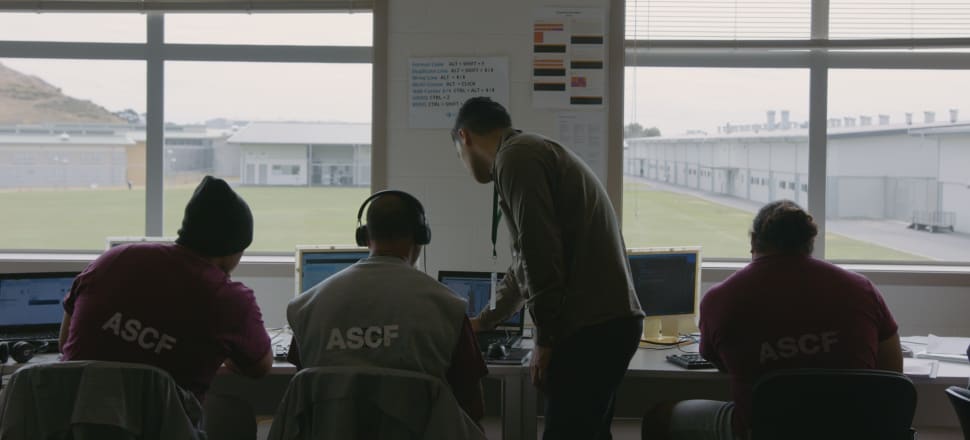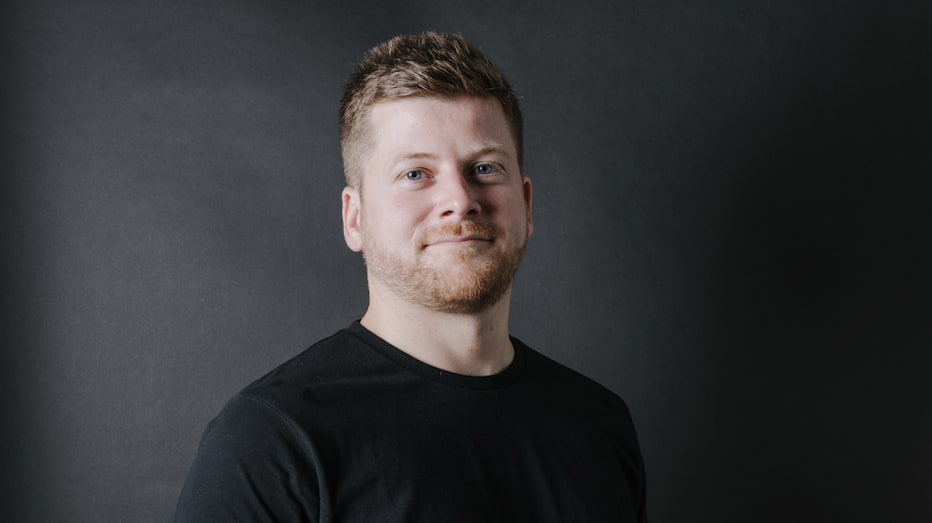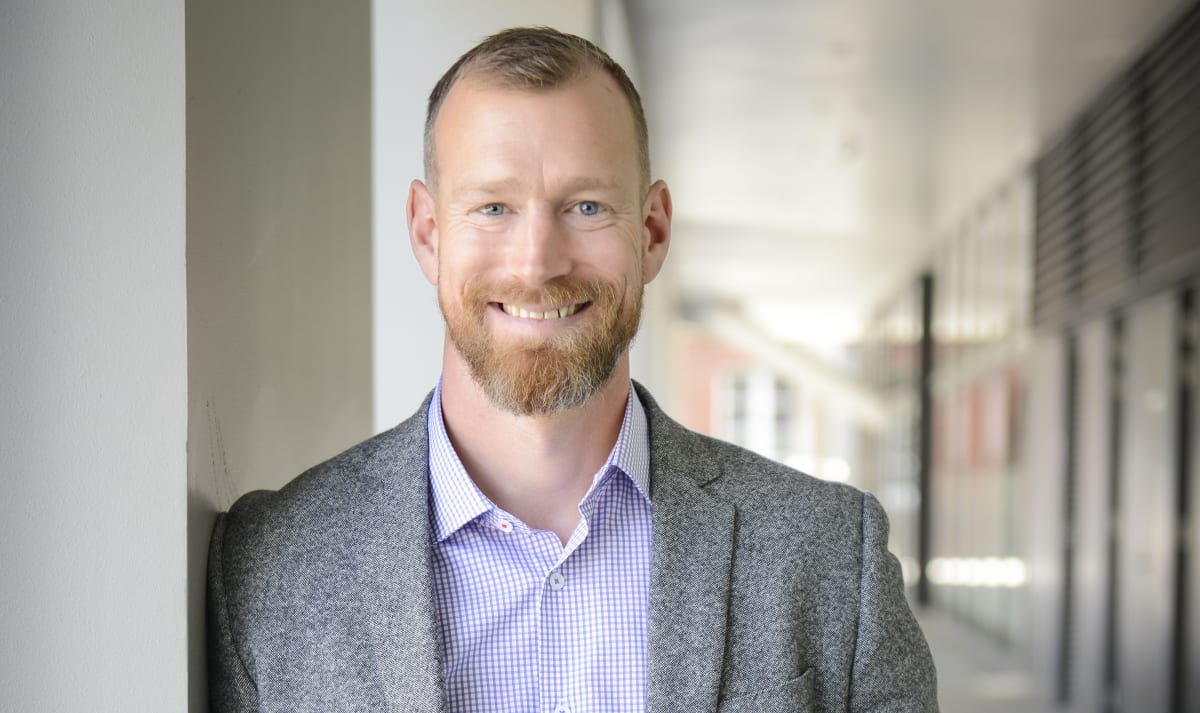
Two major companies have signed up to take on graduates from a programme teaching prisoners to code
Prisoners are learning to code, communicate and connect at Auckland South Corrections Facility in a programme by social enterprise Take2 aimed at easing their way back into the workforce.
The programme teaches prisoners website development and life skills - tools hoped to pave the way to a job in the tech sector upon release.
Take2 founder Cameron Smith began the programme when he saw the need for training to reduce New Zealand’s relatively high rates of recidivism and the immense barriers placed in the way of prisoners seeking employment upon release.
But although he and his team have been behind the training programme for two years now, its ability to get prisoners back in the workforce would be hamstrung without some big players in the tech sector playing ball.
This has come in the form of companies like Spark, Datacom and RUSH offering six-month apprenticeships to Take2 graduates in coding-related roles.
Smith said the first graduate was taken on by Datacom around two months ago.
“All the feedback has been good so far,” he said.
The apprenticeship programme came with a playbook provided to employers showing tech employers how best to set up their newest employee for success as they embark on their first job after prison.
The step-by-step guide was written alongside consultation with industry and community experts, the Department of Corrections, current employment partners, Māori cultural advisors, and current and former Take2 students.
Smith was inspired to set up Take2 to address systemic challenges facing prisoners at the end of their sentences, who are often shut out of contention for jobs from the word go due to blanket bans.
“There are blanket bans, but there may also be personal biases,” Smith said. “We try to work with employers to understand what their concerns are.”
Taking some inspiration from the Last Mile, a US-based social enterprise with a similar modus operandi, Smith saw coding as particularly fruitful, not just because of the need for workers in the sector, but also due to the widely useful skills it teaches.
“Coding is problem-solving and trouble-shooting, so there is an inherent abstract application to the skills they pick up,” he said.

Then of course there’s the need for skilled workers in the tech industry.
“Labour shortages not only provide opportunity for the people in the programme,” Smith said. “There’s also a huge amount of human capital sitting in the justice system.”
According to the Ministry of Business, Innovation and Employment, software developers are in high demand at the moment, with a continued growth in job vacancies. Meanwhile, roles in web development remain on the long-term skill shortage list, with the dearth of workers in the sector only exacerbated by the past two years of border closures.
Smith argues there’s a whole cohort of people who could fill gaps like these in the prison system - while also giving people a chance to go on with their lives after they have done their time.
“For many of our students, it can be immensely daunting to take their first step into a corporate job,” he said. “But despite that, we know how committed and driven they are to creating a better future for themselves and their whānau.”
The stigma faced by prisoners at job interviews is an issue near and dear to Take2 adviser and development coach Dr Paul Wood.
That’s because he spent 10 years from the age of 19 in prison on murder charges. With the opportunity to access education on the inside, he worked his way up through a Bachelors and Masters in Psychology, and was partway through his PhD when he was released.
He said his good outcomes were only possible because of the support he received, such as a company that was willing to take a chance on him once he got out.
“You can’t describe the amount of loyalty you have for them,” he said. “You feel so grateful for the opportunity.”
He suggested in a tech sector where turnover is a big issue, offering somebody the chance to get back in the workforce could create a loyal worker for life.
“If the place I worked for hadn’t given me an opportunity, I never would have harnessed my potential,” he said. “That’s what’s so valuable. These organisations are giving people the opportunity to grow and change.”
Wood doesn’t put his own positive outcomes - now a motivational speaker and community advocate - down to him being any different. It was the support of his father to help him pursue study and having the luck to find some hope and aspiration that gave him the confidence to turn things around.
But the system isn’t set up for many prisoners to come out with those positive outcomes. The reality is perhaps most clearly summarised by rates of recidivism.
Around 70 percent of New Zealanders with previous convictions find themselves with another conviction within two years of release from prison, while just under half are re-imprisoned after two years following release, according to the Ministry of Justice.
Wood said programmes like Take2 can begin the big task of addressing this by giving more prisoners the lucky chances he had.
“Take2 is providing the systemic ingredients needed for people to have the same outcomes that I did,” he said.

A student involved in the programme said while it was stressful trying to learn something that wasn't intuitive to them, the course gave them the confidence to grow their skills.
"As we progressed we quickly picked it up and then knew what we could expect as we learned more and more challenging technologies," they said. "We could see it was a similar experience for newer students too. This experience gave me plenty of confidence to continue coding in the community and to embrace challenges ahead."
Spark CEO Jolie Hodson said with the critical role of technology in the country’s future, it’s important everybody has the tools to access it.
“Although technology has the power to break down barriers, it can also create them for those who don’t have the access or skills to use it,” she said. “Take2’s life-changing programme offers some of our most vulnerable citizens a chance to join Aotearoa’s technology sector and benefit from the significant growth in digital careers that will be experienced in the years to come.”
Meanwhile, Justin Gray, the managing director at Datacom New Zealand, said Take2’s mission aligns with Datacom’s desire for greater equity and inclusion in the tech sector.
“Our team is excited to play a role in providing an opportunity for people, who for various reasons have spent time in prison, to gain new skills in a fast-growing industry that has the potential to kick-start a new life and a successful career,” he said.






